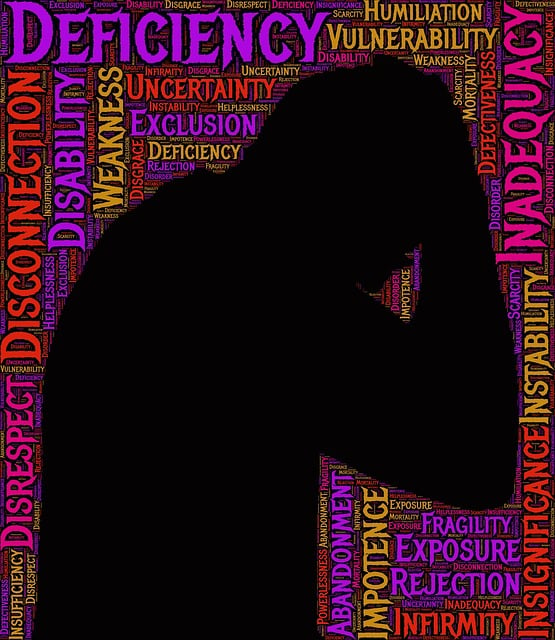Denver Chronic Illness Therapy leads in crisis intervention through specialized teams offering swift, life-altering support during emotional distress, integrating trauma services and resilience building. Their rigorous CIT training includes interactive simulations of diverse crises and focuses on depression prevention, mood management, and self-care. These innovative programs have transformed community responses to mental health crises, promoting early intervention and reducing reliance on emergency services, with positive outcomes for individuals with chronic illnesses and the wider community.
“In the realm of healthcare, crisis intervention teams (CITs) play a vital role in managing urgent mental health situations. This article explores the essential training programs that empower these dedicated teams, drawing insights from Denver Chronic Illness Therapy’s perspective. We uncover key components for effective CIT training, highlight real-world applications through case studies from Denver’s front line, and discuss the broader impact on building resilient communities. By delving into these aspects, we aim to emphasize the significance of CIT training in today’s digital era.”
- Understanding Crisis Intervention Teams: A Denver Chronic Illness Therapy Perspective
- Key Components of Effective Training Programs for CIT Members
- Real-World Applications and Case Studies from Denver's Front Line
- Building Resilient Communities: The Impact and Future of CIT Training in Denver
Understanding Crisis Intervention Teams: A Denver Chronic Illness Therapy Perspective

In the heart of Denver Chronic Illness Therapy, Crisis Intervention Teams (CITs) stand as a beacon of hope and support for individuals grappling with severe emotional distress. These specialized teams are designed to swiftly respond to crisis situations, offering immediate and effective interventions that can be life-altering. By integrating expert knowledge in trauma support services, resilience building, and coping skills development, CITs empower individuals to navigate turbulent times with enhanced coping mechanisms.
Denver Chronic Illness Therapy recognizes the vital role of these teams in fostering a nurturing environment where those in crisis feel understood and supported. Through rigorous training programs, CIT members learn to assess situations accurately, provide empathetic counseling, and implement evidence-based strategies tailored to each individual’s unique needs. This holistic approach ensures that not only acute crises are addressed but also the underlying factors contributing to emotional turmoil, paving the way for lasting recovery and improved mental well-being.
Key Components of Effective Training Programs for CIT Members

Effective crisis intervention team (CIT) training programs are multifaceted and comprehensive, aiming to equip members with the skills and knowledge needed to handle critical situations. Key components include interactive simulations that replicate real-life crises, allowing trainees to practice their response in a safe environment. These scenarios should cover a wide range of potential incidents, from mental health emergencies to substance abuse episodes, reflecting the diverse needs encountered in Denver Chronic Illness Therapy settings.
Moreover, training programs must prioritize both depression prevention and burnout prevention strategies for healthcare providers. By incorporating modules on mood management and resilience-building techniques, CIT members can learn to recognize signs of distress in themselves and others, fostering an environment that promotes well-being and effective crisis intervention. Such programs also emphasize the importance of self-care and professional development, ensuring that team members are equipped to support not only their patients but also each other.
Real-World Applications and Case Studies from Denver's Front Line

In Denver, chronic illness therapy has been a game-changer for many residents facing complex challenges. Front-line workers in this vibrant city have embraced innovative crisis intervention team (CIT) training programs that go beyond textbook knowledge. These programs are designed to equip individuals with practical skills for real-world applications, focusing on mood management and emotional intelligence as key components of effective crisis resolution.
Case studies from Denver highlight the success of CIT training in diverse settings, including hospitals, schools, and community centers. By implementing conflict resolution techniques, team members have learned to de-escalate high-stress situations, fostering safer and more supportive environments for those experiencing mental health crises. This hands-on approach has not only improved outcomes but also enhanced the overall well-being of both crisis responders and the individuals they serve, especially in navigating the complex landscape of chronic illness management.
Building Resilient Communities: The Impact and Future of CIT Training in Denver

In Denver, crisis intervention team (CIT) training programs have emerged as a powerful tool for building resilient communities and fostering better mental health support. These initiatives equip citizens with the skills to recognize and respond to individuals in distress, particularly those suffering from chronic illnesses or other mental health challenges. By promoting early intervention and de-escalation techniques, CIT training empowers community members to provide immediate assistance, potentially reducing the reliance on emergency services.
The impact of such programs is profound, leading to improved outcomes for both individuals in crisis and the broader community. Encouraging self-care practices and mood management strategies among participants promotes mental wellness coaching at a grassroots level. With ongoing development and support, Denver’s CIT training efforts hold promise for revolutionizing local responses to mental health crises, ensuring that residents have access to timely, effective interventions and fostering a culture of care and resilience throughout the city.
Denver Chronic Illness Therapy’s perspective on Crisis Intervention Teams (CITs) highlights the profound impact these programs can have on vulnerable communities. Effective training, as outlined in this article, equips CIT members with essential skills to navigate and de-escalate crises, fostering resilient communities. Real-world applications from Denver’s front line demonstrate the tangible benefits of well-structured CIT training, showcasing its potential to revolutionize support systems for those facing chronic illnesses and other crises. By continuing to refine and expand these programs, we can ensure that our communities are better equipped to handle and prevent future emergencies.














